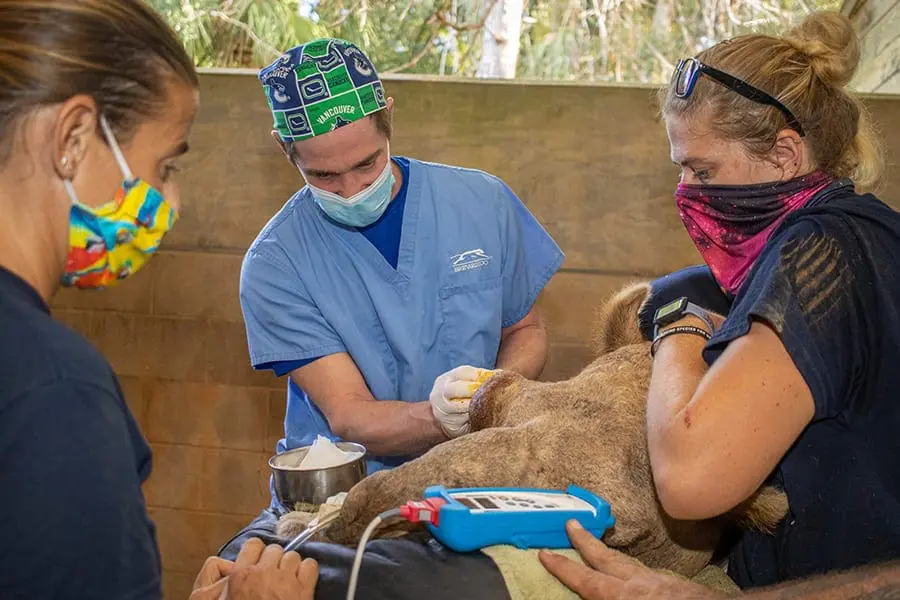

Veterinary intern Dr. Alan Glassman disinfects the surgical site.
Earlier this month, Sammy the dromedary camel’s right eyelids became swollen. This was not immediate cause for concern as Sammy has a history of conjunctivitis that is usually resolved after a day or two of optical flushing.
Unfortunately, Sammy’s condition did not improve, and he was sedated for an exam on Tuesday. Sammy was diagnosed with a stromal abscess (a corneal infection that is fairly common among horses and other large animals) and had lost vision in that eye.
After consulting with a veterinary ophthalmologist, we concluded we had two options to prevent the infection from spreading to other areas of Sammy’s body. The first option was to administer a type of medication that needs to be delivered through a tube into the patient’s eye; this treatment must be performed every several hours around the clock for a period of weeks to months.
The second option was enucleation (or removal of the infected eye). We pursued this treatment because it would almost immediately alleviate the pain Sammy was experiencing, administering the medication would have been an extremely stressful experience for him and the medication likely would not have restored his vision.
Three keepers and curators held Sammy upright while he was sedated to keep the surgical site clean and accessible throughout the procedure. The surgery went as planned, and he recovered from the anesthesia without issue. We could tell Sammy was already feeling better because he started eating just a few hours after waking up—a behavior we did not expect to see until later.
Sammy and our other camel, Frankie, can typically be seen from the Cape to Cairo Express train, but they have moved behind the scenes while we perform maintenance on the track. You’ll be able to see Sammy again and wish him well when the train reopens in October.